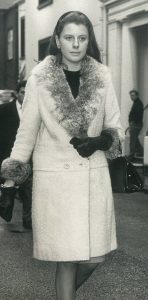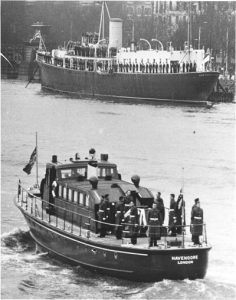
Finest Hour 166
FROM THE EDITOR

Winston Churchill, Parliament Square, London © Sue Lowry & Magellan PR
July 24, 2015
Finest Hour 166, Winter 2015
Page 04
By David Freeman, January 2015
“From Memory to History”
Welcome to the new Finest Hour! This is our first issue since I took over from founding editor Richard M. Langworth. Having worked with Richard for many years, I am acutely aware of the high standards he established and maintained.

2025 International Churchill Conference
2014 was a watershed year for The Churchill Centre. The death of our Patron Mary Soames in the spring, followed by the death of the 11th Duke of Marlborough in the fall, along with Richard’s retirement, clearly marked the end of an era.
This year marks the fiftieth anniversary of the death of Sir Winston, the seventieth anniversary of the end of the Second World War and the hundredth anniversary of the Dardanelles campaign. These are in fact the themes of our winter, spring and summer issues. The fall issue will examine the theme of Churchill and Zionism.
We find ourselves, then, at the crossroads where Churchill’s legacy passes from memory to history, and this is the overarching theme The Churchill Centre has chosen for this year. As we move forward, we are making changes that will enhance our mission to educate new generations about the life of Winston Churchill.
The first thing you will notice about this issue is that it is thinner. This is part of the transition we are all making into the digital age. Increasingly, Finest Hour will be integrated with our website and our on-line newsletter the Chartwell Bulletin so that more original content appears on our web-based platforms, including The Churchill Centre page on Facebook.
In this issue we begin with a special piece written for us by Sir Winston’s granddaughter the Hon. Celia Sandys. Celia is now the last survivor of those who were at her grandfather’s bedside when he passed away. Rodney Croft provides a detailed account of the State Funeral from start to finish, and Dana Cook catalogs some of the impressions that Churchill made on those he met.
New books about Churchill keep arriving. Conrad Black and Chris Matthews review for us two of the most notable books of 2014, while Richard Toye describes how the digital world has transformed the process of researching new work about Churchill.
On-line research is a far cry from how Churchill wrote his own books, which as Peter Clarke reminds us was “Mr. Churchill’s profession.” We continue to mark the centenary of the First World War, with Michael Shelden’s account of Churchill’s increasingly strained relationship with Prime Minister Asquith.
And we also say a final goodbye to our late Patron with the eulogy delivered at her memorial service by William Shawcross.
Subscribe
WANT MORE?
Get the Churchill Bulletin delivered to your inbox once a month.





